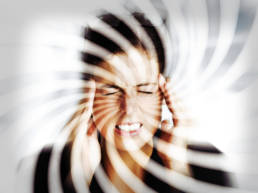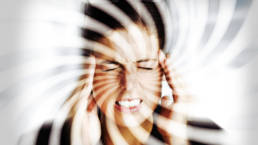Addressing vertigo in a reality-based environment has given doctors exciting new therapy options for treating the condition.
Vertigo is a sensation of whirling and loss of balance, associated particularly with looking down from a great height, or caused by disease affecting the inner ear or the vestibular nerve.
The Korebalance provides exercise to three peripheral systems: vestibular, vision and proprioception to perform a coordinated function. This helps the body to re-train and improve proprioception and to develop new neurosensory pathways, thereby improving motor control, balance and neuromuscular coordination. The Korebalance can be used by all ages and levels of ability. It can be enjoyed by everyone — from youth and interactive fitness to active aging and fall prevention programs. Korebalance’s patented technology, easy to use software, fun challenging mazes, make it the most effective assessment, training and rehabilitation device in the market.
Features and Benefits
- Stimulate the brain and nervous system to improve balance, stability, coordination and posture
- Improves agility, reaction time and motor control
- Makes workouts challenging, fun and interactive
- Improves confidence for seniors decreasing the chances of falling
- Minimizes repetitive stress on joint structures
- Trains the body to respond to an unstable environment (real-life activities)
- Improves muscle strength, flexibility, range of motion
- Rehabilitates and prevents lower-limb injuries. Korebalance “will keep your athletes on the field”
- Rehabilitates concussions and traumatic brain injury and associated dizziness
- Increases calorie burn because more musculature is recruited
Vertigo is often the result of some sort of inner ear problem. Some of the common inner ear issues we see in our patients who suffer from vertigo include:
BPPV. Short for benign paroxysmal positional vertigo, BPPV is a condition that occurs when tiny calcium particles, which are known as canaliths, gather into clumps in the deeper canals of the inner ear. The inner ear is key to maintaining balance, and these deposits interfere with this and result in dizziness and loss of balance.
Meniere’s disease. This disorder also affects the deep inner ear and is thought to be caused by increased pressure in the ear. Usually it is the accumulation of fluid in the inner ear that causes this pressure. It can cause episodes of vertigo and other disturbances such as ringing in the ears and hearing loss, which can also affect balance.
Vestibular neuritis or labyrinthitis. Another inner ear problem that is common in people who suffer from vertigo, this condition is usually related to infection in the ear. The infection leads to inflammation, swelling, and irritation in the inner ear and affects the nerves that communicate with the brain and help control balance, movement, and stability.
Vertigo can also have its roots in other conditions such as:
- Head, back, or neck injury that affects the spine and nerves
- Brain problems like stroke, aneurism, blood clots, or tumors
- Certain medications that can affect the ears or hinder balance
- Migraine headaches and other severe headaches as well
According to the University of Wisconsin Division of Otolaryngology, as many as 42% of all adults experience episodes of dizziness that are severe enough to report to their doctor. Many of these are older adults, which means the dizziness also causes them to suffer from a fear of falling, which in turn keeps them from enjoying basic daily activities and events that most people take for granted. These symptoms often come on gradually, over an extended period of time, and go unrecognized until they can no longer be overlooked.
Vertigo varies from feelings of dizziness or wooziness to feeling like you are going to fall over or pass out. 70% of patients are given prescription medications to treat the symptoms, but this will not solve the problem or improve balance. This is unfortunate as there is nothing worse than feeling fine but being unable to get out and do things for fear of getting dizzy and falling.
Common Symptoms of Vertigo
- Spinning and dizziness like getting off a spinning tire swing
- Tilting and feeling like the ground is moving under their feet
- Swaying and being pushed around by an invisible force
- Feeling unbalanced like one side of the body feels heavier than the other
- Feeling pulled to one side or in one direction when trying to walk
- Nausea and vomiting
- Abnormal eye movements
- Headache from mild to severe
- Sweating and feeling feverish
- Ringing in the ears or hearing loss
- Blurred or distorted vision
- Paleness and overall body weakness
Vertigo is often brought on by quickly moving your head or changing positions.
Symptoms can last a few minutes to a few hours or more and may come and go. Any cases of vertigo that last more than a few minutes or that result in falling or blacking out need to be reported to a healthcare professional as soon as possible. This is essential as it is important to check for other symptoms in order to rule out other more serious underlying conditions that might be causing the vertigo.

